Index relies entirely on the support of donors and readers to do its work.
Help us keep amplifying censored voices today.
[vc_row][vc_column][vc_column_text]
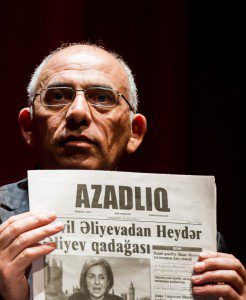
Rahim Haciyev, acting editor-in-chief of 2014 Index on Censorship Freedom of Expression Journalism Award-winning Azerbaijani newspaper Azadliq (Photo: Alex Brenner for Index on Censorship)
Civil, political and human rights are harshly restricted and frequently violated in Azerbaijan. Independent and critical journalists frequently find themselves — or their families — targeted.
Rahim Haciyev, acting editor in chief of the Index Award-winning independent newspaper Azadliq, was forced to flee Azerbaijan after years of official harassment. The government has repeatedly cracked-down on dissent.
Haciyev wrote to Index on Censorship from exile in a western European country:
I’m very sorry that the repressive policy of the Azerbaijani authorities against the Azadliq newspaper forced me to leave the country.
After the arrest of the newspaper’s financial director Faig Amirli, the authorities soon stopped issuing a print version. Amirli was arrested on obviously fabricated charges. I was summoned several times to the prosecutor’s office several times to testify about the paper’s financial affairs. The prosecutors said that this was connected with the criminal case of Amirli, but are invesitgating him under charges of “inciting religious hatred” and “violating the rights of citizens under the pretext of conducting religious rights”.
It turned out that they were interested in the financial issues of the newspaper in order to find a way to silence it. In addition, several employees of the newspaper were summoned for questioning. Then a court ordered tax authorities to comb through the paper’s financial activities. It’s clear that this was undertaken to increase pressure on the newspaper and me personally.
Aiming to cripple Azadliq, the government-owned distribution company was ordered to withhold circulation receipts — $84,000. So we weren’t able to print or even pay our bills. Three staffers are in prison — Seymur Hezi, Faig Amirli and Elchin. Each of them had sharply criticised the lawlessness and corruption of Azerbaijani officials.
In February, 11 Azadliq employees were summoned to the prosecutor’s offices to be interrogated again. Several government agencies increased their pressure on the newspaper’s online operation.
I had been warned twice in the past two years by the prosecutor general’s office that under my leadership Azadliq had been slandering Azerbaijani authorities. In their notices I was told that failure to comply with their terms would mean legal repercussions for me. But I refused. The newspaper continued to report on corruption, abuses of power and the absence of the rule of law. We were devoted to pursuing the truth.
And that is why the authorities intensified repression against the newspaper. Now this lawlessness has forced me to leave the country.
This decision was extremely difficult. I am cut off from my family and friends. I have two children and don’t know when I will see them again.
But despite all the problems I will continue to work daily for the newspaper’s website.
It’s my job, this is my job, this is my life.
Rahim Haciyev
Acting Editor-in-Chief, Azadliq
Haciyev is just one of the many journalists who have been targeted by Azerbaijani authorities in recent years. The country is ranked 163rd out of 180 countries in RSF’s 2016 World Press Freedom Index, which ranks 180 countries according to the level of freedom available to journalists. Almost everyone who speaks out against the regime of President Ilham Aliyev, including journalists, human rights defenders, activists and bloggers, are commonly imprisoned on spurious charges, such as drug and weapon possession, hooliganism and tax evasion. Reports of torture and abuse are typical by those being detained. At least 15 Azerbaijani prisoners of conscience currently remain in jail, including:[/vc_column_text][/vc_column][/vc_row][vc_row][vc_column width=”1/2″][vc_column_text]

Mehman Huseynov (Twitter)
Mehman Huseynov, an Azerbaijani journalist and pro-opposition blogger, was sentenced to two years in jail on 3 March by a Baku court for defaming the police chief of the city’s Nasimi district. Huseynov intends to appeal his sentencing. According to Front Line Defenders, a group of police officers violently attacked Huseynov on 9 January. The next he was brought to court, found guilty of disobeying police orders and fined 200 manat (£96). [/vc_column_text][/vc_column][vc_column width=”1/2″][vc_column_text]

Elchin Ismayilli (IRFS.org)
Founder and editor of online news portal Kend.info Elchin Ismayilli was arrested on 17 February on charges of “extorting money” and “aggravated abuse of a position of influence”. According to the Caucasian Knot, he was also accused of blackmailing a local office, charges he insists were fabricated to silence his coverage of local corruption and human rights violations. On 18 February, Ismayilli was sentenced to a pre-trial detention period of 24 days. He has previously been subject to multiple arrests and cases of harassment related to his work as a journalist.[/vc_column_text][/vc_column][/vc_row][vc_row][vc_column width=”1/2″][vc_column_text]

Faig Amirli (IRFS.org)
On 3 March, a court decided to prolong the period of investigation of Faig Amirli for three months, the Azerbaijan Press Agency reported. Amirli, financial director of newspaper and assistant chairman of the Azerbaijani Popular Front Party (APFP), was arrested on 20 August 2016 for “inciting religious hatred” and “violating the rights of citizens under the pretext of conducting religious rights,” according to Radio Free Europe/Radio Liberty.[/vc_column_text][/vc_column][vc_column width=”1/2″][vc_column_text]

Rashad Ramazanov (IRFS.org)
Writer and blogger Rashad Ramazanov was arrested on 9 May 2013 and sentenced to nine years in prison. According to English PEN, his charges included “illegal possession and sale of drugs”. Police claimed to have found nine grams of heroin on his body, although Ramazanov insists that the drugs were planted by the officers, who he claims also beat him up and tortured him during interrogation. Ramazanov was sentenced to nine years in prison in November 2013 on a trumped-up drug trafficking charge. PEN International reported that on 23 January Ramazanov was moved to solitary confinement for 15 days, the reason for which remains unknown. On 7 February Ramazanov was released from solitary confinement, and his family was given permission to visit him.[/vc_column_text][/vc_column][/vc_row][vc_row][vc_column width=”1/2″][vc_column_text]
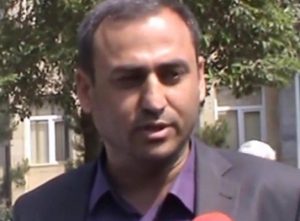
Afgan Sadigov. (IRFS.org)
Founder and editor of the website Azel, Afgan Sadygov, was sentenced on 12 January to 2.5 years in jail. Sadygov was arrested on 22 November 2016 based on accusations of “hooliganism” after he was attacked on 9 August 2016 and allegedly hit a woman, Contact Online news reported. Sadygov’s website often reports on issues such as poor infrastructure maintenance, bad quality of roads and waste of public funds in Azerbaijan’s Jalilabad region.[/vc_column_text][/vc_column][vc_column width=”1/2″][vc_column_text]
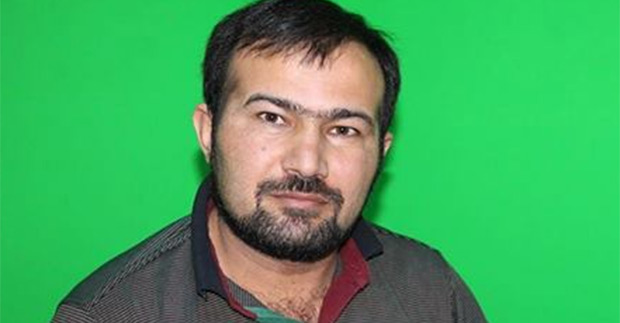
Seymur Hezi
According to MeydanTV, the Supreme Court will hear the appeal of Seymur Hezi, reporter for opposition news source Azadliq and presenter for critical TV program “Azerbaycan Saati” on 13 April. The journalist was sentenced to five years in prison on 29 January 2015 on a trumped-up charge of aggravated hooliganism, Index on Censorship reported. The charge came after Hezi was attacked on 29 August by Maherram Hasanov, a complete stranger, and defended himself. Hezi has accused President Ilham Aliyev and chief of staff Ramiz Mehdyev of ordering his arrest.[/vc_column_text][/vc_column][/vc_row][vc_row][vc_column width=”1/2″][vc_column_text]
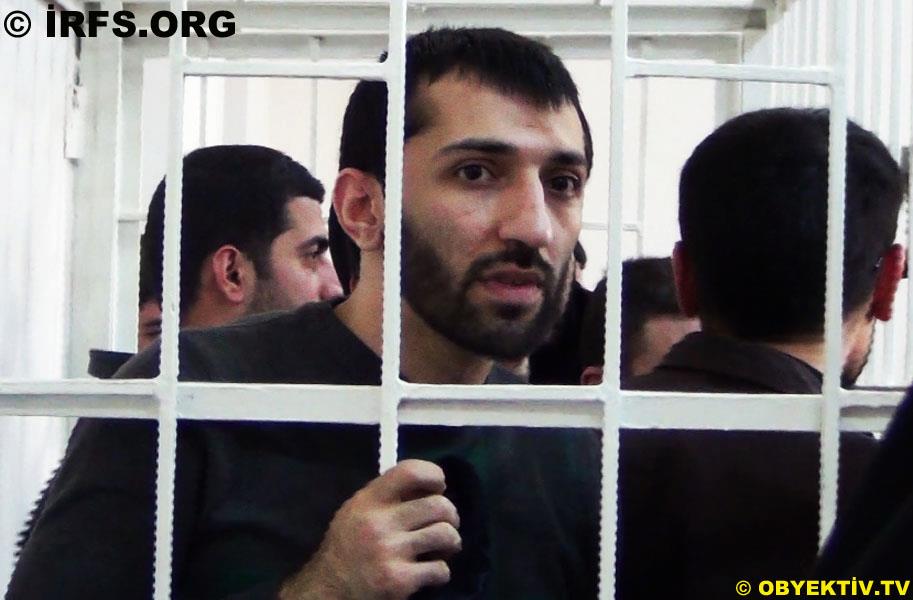
Nijat Aliyev. (IRFS.org)
The lawyer of Nijat Aliyev, former chief editor of religious website Azadxeber.org, has not been able to get hold of the text of the verdict of the Supreme Court of Azerbaijan for his client, Contact Online news reported. Aliyev’s lawyer believes that the delay has been intentional in order to prevent the filing of a complaint with the European Court of Human Rights, Contact Online news reported. According to IRFS, Aliyev was detained on 20 May 2012 and sentenced to 10 years in prison on 9 December 2013 on charges of illegal possession of drugs and weapons, incitement of religious hatred, calls to seize power and distributing banned religious literature. Aliyev’s website previously published criticisms of the government’s policies in regards to religion, the possibility of a LGBT parade in Baku and the allotment of too much funding for the Eurovision Song Contest in 2012, OCCRP reported.[/vc_column_text][/vc_column][vc_column width=”1/2″][vc_column_text]
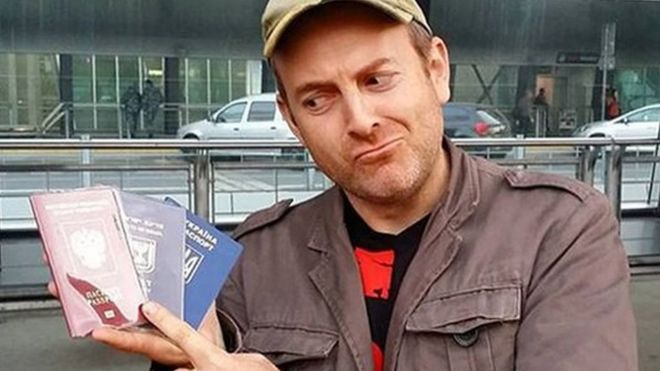
Alexander Lapshin (BBC)
Russian-Israeli travel blogger Alexander Lapshin was extradited from Belarus to Azerbaijan on 7 February. He faces up to five years in prison on charges of “public calls against the state” and “unauthorised crossing of borders,” according to Armenian News Agency ArmenPress. These charges came after Lapshin traveled to the disputed territory of Nagorno-Karabakh and sympathised in his blog entries with the Armenians he met, GlobalResearch reported. [/vc_column_text][/vc_column][/vc_row][vc_row][vc_column width=”1/2″][vc_column_text]
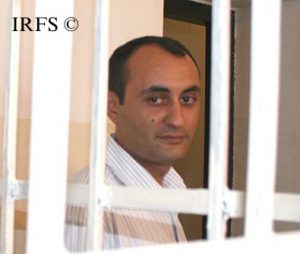
Fikrat Faramazoglu (IRFS.org)
Fikrat Faramazoglu, editor-in-chief of news website jam.az, has been detained since 30 June 2016 on the charge of extortion by means of threats, which is punishable by up to five years in prison. According to Azerbaijan Free Expression Platform, these charges originated when a local restaurant owner accused Faramazoglu of extorting money from him when asked to remove defamatory articles about the restaurant on websites owned by the journalist.[/vc_column_text][/vc_column][vc_column width=”1/2″][vc_column_text]

Abdul Abilov (IRFS.org)
Blogger and social media activist Abdul Abilov has been imprisoned since 22 November 2013. According to Azerbaijan Free Expression Platform, Abilov was charged with illegal possession, storage and manufacturing or sale of drugs when authorities claim to have found illegal drugs in his home and on his person, which Abilov continues to protest were planted on him. On 27 May 2014 Abilov was sentenced to five-and-a-half years in prison. Stop Sycophants!, the Facebook page previously run by Abilov, was shut down following his arrest, IRFS reported. The page was known to strongly criticise authorities.[/vc_column_text][/vc_column][/vc_row]
[vc_row][vc_column][vc_column_text]
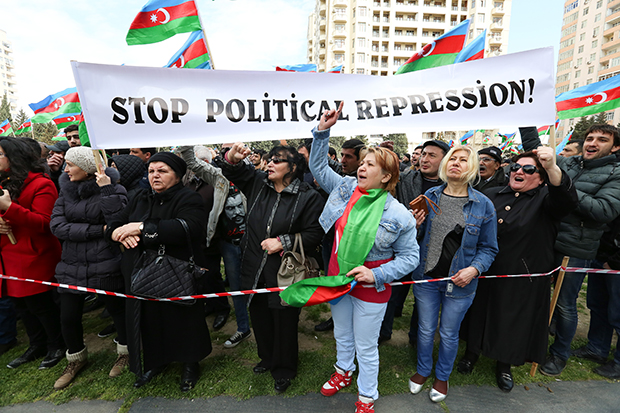
Photo: Aziz Karimov
For Azerbaijan’s president Ilham Aliyev and many other authoritarian leaders across the world, independent journalism and what it represents is bad news. The more irritating leaders find journalists’ work, the harsher consequences are for those reporting. This has been one of the most worrying trends across the world in recent years.
In 2016, there were 38 threats to press freedom reported to the Index on Censorship project Mapping Media Freedom. Journalists critical of the government were tortured and arrested. Internet sites were repeatedly blocked. TV outlets were knocked off the air through revocation of broadcast licences. Newspapers were starved to near bankruptcy and prevented from printing. Online criticism of the country’s hereditary president has been outlawed. Even family members of journalists have been targeted.
“In the last year alone, authorities have either detained, arrested, questioned six journalists and one blogger. Some parliament members have even hinted at introducing legislation that would monitor social media. The relentless pressure on media professionals and citizen journalists in Azerbaijan is aimed at shutting down any criticism of the Aliyev regime. The continued crackdown on freedom of speech is a clear violation of human rights,” Hannah Machlin, Mapping Media Freedom project officer, said.
The dismal state of free expression in Azerbaijan catalogued by Mapping Media Freedom is indirectly validated by Reporters Without Borders’ 2016 Press Freedom Index. That organisation found a disturbing decline in respect for media freedom around the world.
“It is unfortunately clear that many of the world’s leaders are developing a form of paranoia about legitimate journalists,” secretary general of RSF Christophe Deloire said.
Azerbaijan ranks 163rd on the press freedom index. The country’s ruling powers have long banned independent journalism and anyone who remained defiant was branded an agent, a traitor, a hooligan, a drug addict, anything but a journalist. While Mapping Media Freedom began closely monitoring the country in the second quarter of 2016, the clampdown on journalists long precedes this.
In 2014, authorities shut down the office of Azerbaijan Service for Radio Free Europe Radio Liberty. Around the same time, the dissident media outlet Meydan TV, shut down its office fearing a similar action. Its reporters on the ground have been detained, questioned and placed on travel ban lists ever since. Independent newspapers such as Zerkalo and Azadliq have been stifled with numerous libel charges. Both newspapers ceased printing issues with Azadliq available to its readers online only. One, columnist and TV anchor Seymur Hezi, remains in jail following a charge of “aggravated hooliganism” saw him sent to prison for over five years.
Azerbaijan’s media in exile
As the space for a free media shrank over the past few years, journalists fled the country. Some have chosen neighbouring Georgia as their base while others continue their work from Berlin and elsewhere.
Since 2015, a group of exiled Azerbaijani civil society activists who have been based in Georgia have designed a project to create opportunities for Azerbaijani journalists based in Georgia’s capital, Tbilisi, to work with local media outlets. Under the guidance of the Human Rights House Tbilisi, this initiative has involved at least a dozen journalists from Azerbaijan. The group has reported on the human rights and the day-to-day of living in Georgia.
Gulnur Kazimova left Azerbaijan out of fear of persecution and is currently based in Tbilisi where she lives with her family. She was among the participants of the HRH initiative. During the programme she reported on women’s issues that Azerbaijani community faced in Georgia. One such story was about a 19-year-old woman who was constantly beaten and threatened by her husband who kidnapped her at the age of 13 and eventually murdered her by cutting her throat. Another exiled journalist, Tural Gurbanli, wrote about the issue of wearing hijab in the village of Karajala, which is mostly populated by Azerbaijanis who have settled in Georgia.
Emin Milli, a former political prisoner, who currently lives in exile in Berlin, created Meydan TV, an online media platform. With over 400,000 likes on their Facebook page, and over 60,000 subscribers to its YouTube Channel, Meydan TV has strived to present a comprehensive picture of Azerbaijan by collecting news, conducting interviews and providing independent reporting. Its freelance contributors inside the country have paid a heavy price for this: they have been persecuted by the police, detained, questioned and placed on no travel lists.
Radio Free Europe and Radio Liberty Azerbaijan Service’s contributors have also been targeted by officials in the country. Like Meydan TV, Radio Liberty has a large following on Facebook with over 400,000 readers and more than 100,000 subscribers on YouTube.
Index on Censorship Award-winning Azadliq newspaper continues its coverage of the country through its online presence despite the ongoing targeting by the government. The newspaper’s editor-in-chief is exiled while his family members have been harassed by the authorities, and the newspaper’s chief financial director was arrested for his alleged support for Gulen religious movement said to be behind the failed coup in Turkey and his criticism of the authorities and was recently sentenced to 10 years in jail.
The current list of political prisoners that stands around 100 individuals includes prominent journalist Seymur Hezi, as well as other journalists and bloggers who have been jailed on bogus charges. Despite the release of top investigative reporter Khadija Ismayil in May of 2016, along with a number of other prominent political prisoners, the new arrests and crackdown against existing independent media, its reporters and its platforms are indicative of a revolving door policy when it comes to press freedom in Azerbaijan. [/vc_column_text][vc_basic_grid post_type=”post” max_items=”4″ element_width=”6″ grid_id=”vc_gid:1486487716820-6a1b311c-3186-5″ taxonomies=”7145″][/vc_column][/vc_row]
18 August 2016. Less than six weeks ahead of a constitutional referendum, Azerbaijani authorities have unleashed a new wave of repression to silence critical voices. The undersigned members of the Sport for Rights coalition condemn this renewed crackdown, and call on officials to take immediate steps to improve the human rights situation in the country, starting with the release of political prisoners.
On 12 August, prominent Azerbaijani economist and executive secretary of the opposition Republican Alternative (REAL) movement Natig Jafarli was arrested on charges of illegal entrepreneurship and abuse of power, and sentenced to four months of pre-trial detention. On 17 August, the Court of Appeals rejected the appeal for his release. According to Sport for Rights member the Institute for Reporters’ Freedom and Safety, Jafarli has been locked up for his “peaceful criticism” of the country’s upcoming constitutional referendum. The charges against Jafarli stem from a criminal case the Prosecutor General’s Office launched against a group of NGOs in 2014. If convicted, Jafarli may face up to eight years of imprisonment.
|
Sport for Rights considers charges against activists to be politically motivated.
|
On 13 August, NIDA civic movement activist Elgiz Gahraman was arrested, held incommunicado over the weekend, charged on 15 August with drug possession, and sentenced to four months’ pre-trial detention. Also on 15 August, REAL movement youth activists Elshan Gasimov and Togrul Ismayilov were arrested and sentenced to seven days of administrative detention each on charges of resisting police. Authorities also harassed civic activist and former political prisoner Bakhtiyar Hajiyev, calling him in for questioning and then subjecting him to a court hearing that dragged out over three days, before fining him 100 AZN on charges of “minor hooliganism”.
Sport for Rights considers the charges against Jafarli, Gahraman, and the other activists to be politically motivated, and calls for their immediate and unconditional release, along with the release of all of Azerbaijan’s dozens of political prisoners – including opposition REAL movement leader Ilgar Mammadov, whose release has been ordered by the European Court of Human Rights; journalist Seymur Hezi; and youth activists Ilkin Rustemzade, Giyas Ibrahimov, and Bayram Mammadov.
This spate of repression takes place in the aftermath of Azerbaijan’s latest mega event, the Formula One European Grand Prix, held in Baku in June. It also takes place on the eve of a constitutional referendum set for 26 September, which will decide a series of problematic amendments aimed at further consolidating power in Azerbaijan’s already dominant presidency. The Azerbaijani government’s proposal of these amendments immediately followed July’s coup attempt in Turkey.
Events in Turkey have played a further role in Azerbaijan’s renewed crackdown. On 15 August, the Azerbaijani Prosecutor General’s Office announced it had opened a criminal case against supporters of the Turkish Gulen movement “to prevent illegal actions on the territory of Azerbaijan”. Detained NIDA civic movement activist Elgiz Gahraman was linked to the Gulen movement in an article in the pro-governmental press that also targeted figures of the opposition Popular Front Party and the satellite Azerbaycan Saatı (“Azerbaijan Hour”) programme, signalling possible further pressure to come. On 17 August, the Caucasus University in Baku announced it had fired 50 Turkish instructors for alleged links with the Gulen movement.
Broadcast of Azerbaijan Saatı was stopped on 27 July when Turkish television station Barış TV, which carried the programme, was among the media outlets shut down by a presidential decree in Turkey, alleging their connection to the Gulen movement. The transmission of another rare critical news source on developments in Azerbaijan, Radio Free Europe/Radio Liberty’s programme Azadlıq (“Freedom”) A-LIVE, was halted without explanation by Türksat satellite on 8 August. In Azerbaijan, private national television station ANS TV remains off the air following a court order on 29 July to revoke the station’s license in connection with an interview it had planned to broadcast with Fethullah Gulen.
All of this occurs against the backdrop of a dire overall human rights situation in Azerbaijan. The media remains completely dominated by the state, and critical journalists operate in a climate of fear. Excessive restrictions remain on civil society, severely hindering the ability of independent NGOs to operate. Travel bans continue to be used against journalists, activists, and politicians – including journalists Khadija Ismayilova, whose appeal to lift her travel ban was denied on 15 August, and Elchin Mammad, who was detained when trying to cross the Azerbaijani border on 9 August.
The Sport for Rights coalition calls for the Azerbaijani authorities to immediately cease these gross and systemic violations and take steps to improve the human rights situation in the country, starting with the immediate and unconditional release of political prisoners held for their peaceful political activities or exercise of their right to freedom of expression. Sport for Rights further calls for sustained attention to Azerbaijan by the international community, and concrete action to hold the Azerbaijani government accountable for its human rights obligations.
Supporting organisations:
ARTICLE 19
Canadian Journalists for Free Expression
Civil Rights Defenders
Freedom House
Freedom Now
Helsinki Foundation for Human Rights
Human Rights House Foundation
Index on Censorship
Institute for Reporters’ Freedom and Safety
International Media Support
International Partnership for Human Rights
Netherlands Helsinki Committee
Norwegian Helsinki Committee
PEN America
PEN International
People in Need
Reporters Without Borders
World Organisation Against Torture (OMCT)
Related:
Index on Censorship’s Azerbaijan campaign
Azerbaijan’s long assault on media freedom

Azadliq journalist Seymur Hezi was arrested in August 2014. He was subsequently convicted of aggravated hooliganism and sentenced to five years in prison.
Azerbaijan has never had a strong record on press freedom. Since independence, the country’s journalists have been mistreated, while independent and opposition newspapers faced constant libel charges and other harassment from local law enforcement or criminal elements.
Journalists and outlets that support government policies are left alone to fill their pages with praise, while those who take a more critical approach are punished. Official court documents detail how journalists have been sent to prison on trumped-up charges of hooliganism, extortion, trafficking, and instigating mass protests and violence.
In practice, however, targeted journalists reported on official corruption, criticised extravagant government spending or documented illegal evictions. While the country’s leaders and key decision makers pay lip service to media freedom, the government continues to hunt down journalists, activists and human rights defenders.
Periodic waves of arrests have created a sense of fear that has suffocated the country’s journalists. Independent media — like Index award-winning Azadliq — have been pushed into bankruptcy through the withholding of funds and spurious libel litigation. Even media organisations based outside the country — like meydan.tv — have been subject to harassment and punitive investigations. Azerbaijan’s small but remaining mass of independent voices is shrinking.
The timeline, beginning in 2003, includes journalists and bloggers who have been arrested and sentenced on bogus charges.